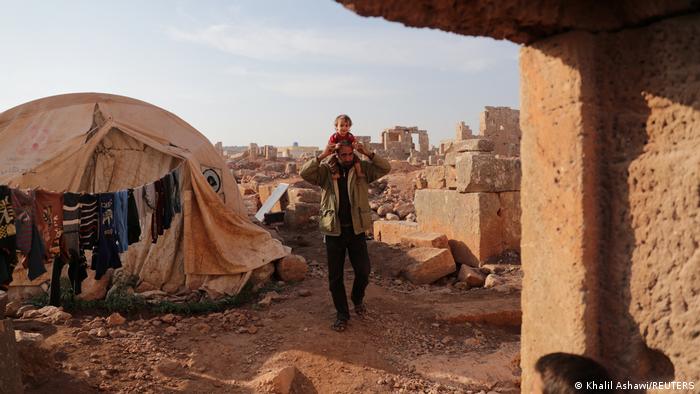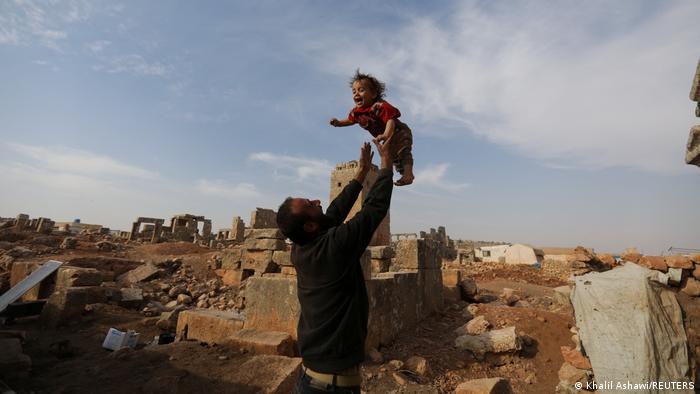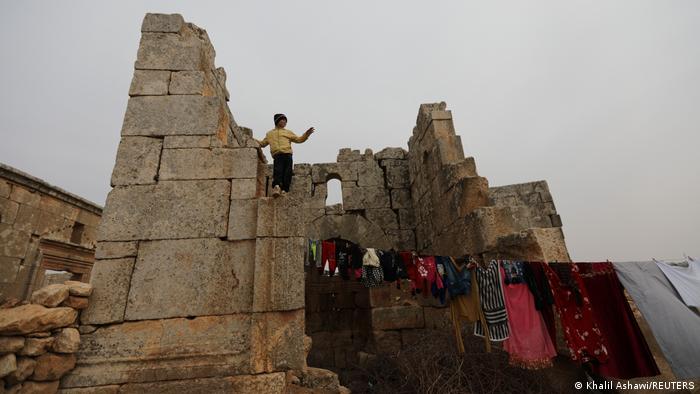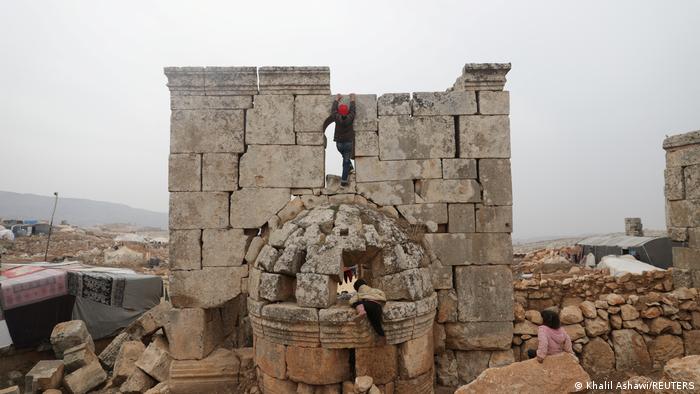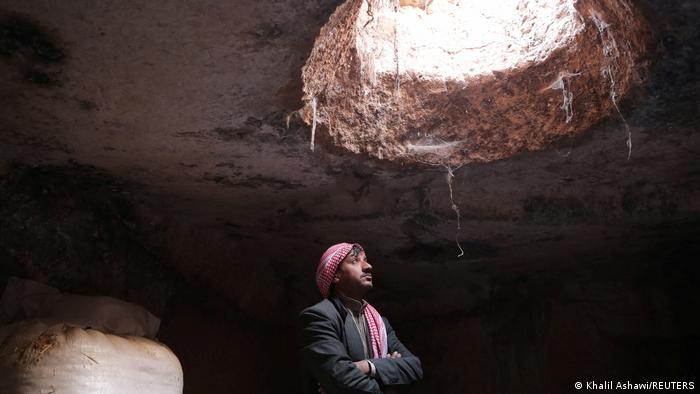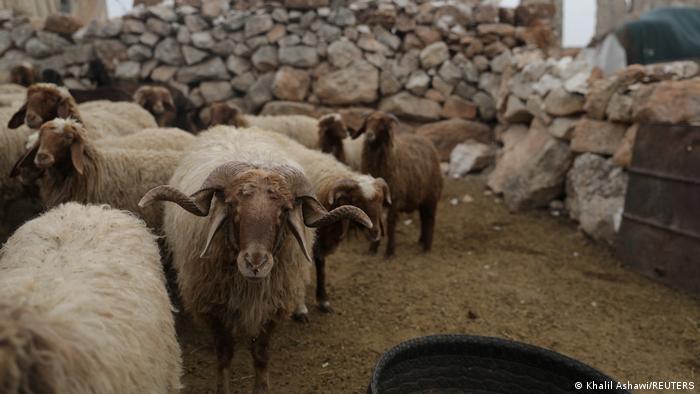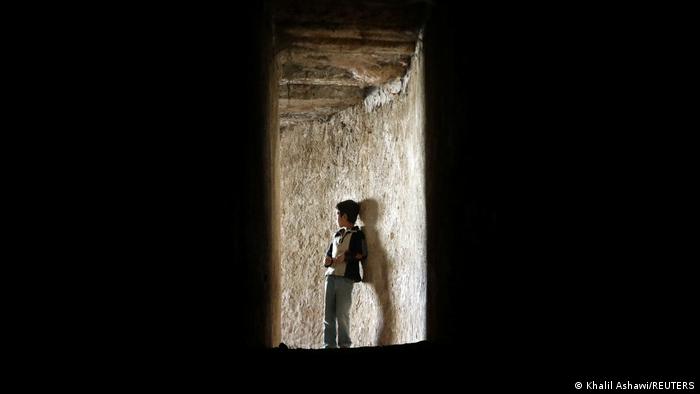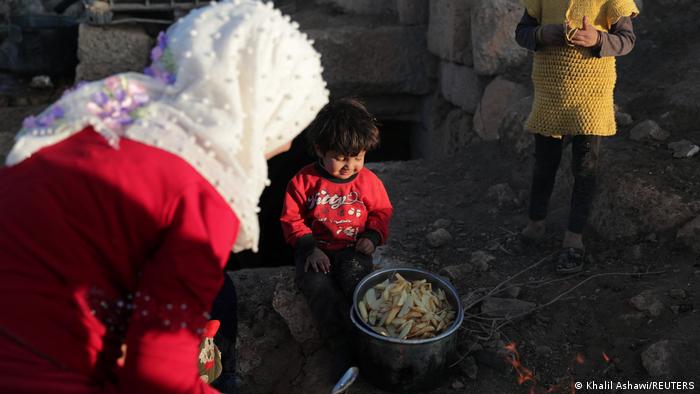Not safe to stay, not safe to go home
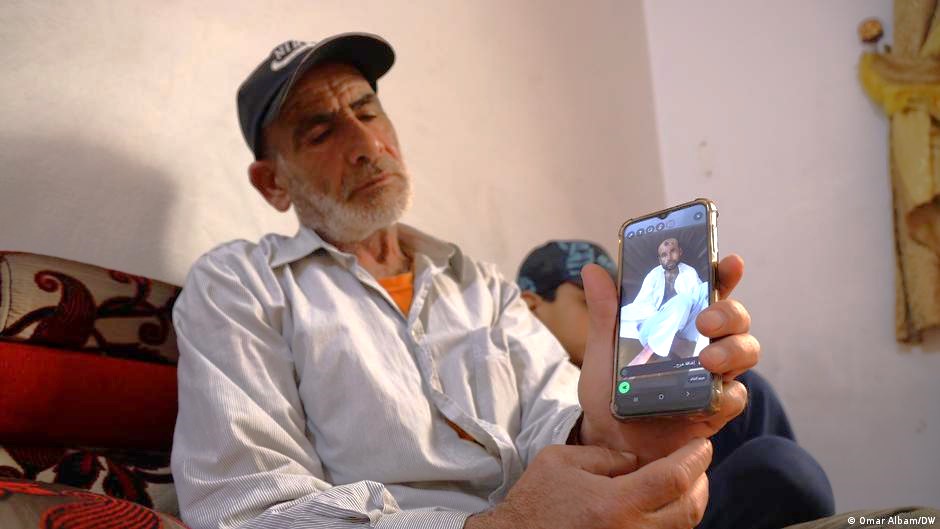
It was after his son died as the result of a violent beating, that Walid Muhammad Abdel-Baqi finally made the decision to leave Lebanon for Syria. "My son was headed towards Beirut, on the way to his sister's place in Sidon," said Abdel-Baqi, a Syrian refugee whose family has been in Lebanon since 2012. "But when he arrived there, it was dark, he got lost and couldn't find the house."
After that, the family lost contact with Ali Walid, 30, for over two weeks. They later found out a gang of unknown men had beaten him so badly that they had fractured his skull, broken his ribs and caused internal bleeding, before dumping him outside a police station. Abdel-Baqi, 50, is certain they attacked Ali Walid because he was Syrian.
Lebanon is dealing with a growing surge of anti-Syrian sentiment. With a population of over 5.2 million, the country also hosts an estimated 1.5 million Syrians, most of whom fled from next-door Syria during their country's long-running civil war. Thanks to Lebanon's economic and political crises, tensions between native Lebanese and displaced Syrians have worsened in recent years.
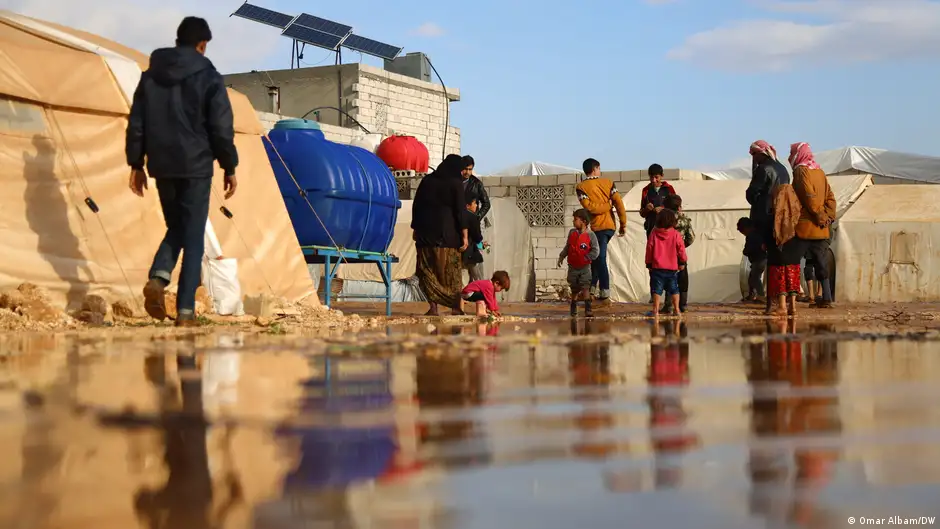
Rights organisations say the Lebanese military have been forcibly deporting Syrians over the border, even though their lives are in danger there. Recent changes to European Union migration policy are only making things worse, analysts and experts say. For Abdel-Baqi and his family, the outcome was tragic: Ali Walid died from his injuries.
The Abdel-Baqi family had fled to Lebanon 12 years ago when violence broke out, after the Syrian government brutally cracked down on peaceful protests. But now they felt they had no choice. They would return to Syria – but not to government-controlled areas. Instead, they would go to Idlib, an area in northern Syria controlled by opposition groups.
"There are some Syrians who try to escape Lebanon by sea, leaving from Tripoli [in an attempt to get to Europe]. But they might drown and they have to sell everything to raise money for people smugglers," Abdel-Baqi explained why Idlib was their only option. The dangerous journey back took the family a week.
Idlib: Life among the ruins
Risk of death, torture, prison
On the return journey there is also ever present danger of running into Syrian government forces, who see any returnees as enemies of Syrian dictator Bashar Assad. Beirut-based newspaper Al Modon reported last year that young men on this journey often go missing. They are thought to be imprisoned, forced into the Syrian army or dead.
The route taken to Idlib depends on whether travellers are known as anti-government by the Syrian regime or not. To get back into Idlib, most must cross into government-held territory briefly, often having to bribe guards at checkpoints. Those who are known to the authorities make a more difficult trip on back roads and mountain trails, usually paying people smugglers about $650 for this.
The Abdel-Baqis are not the only desperate Syrian families choosing this difficult and dangerous journey back into Idlib. This is despite the fact that the Russian air force, allied with the Assad regime, still regularly bombs here. Since the start of this year until this week, Syrian volunteer civil defence, the White Helmets, say they responded to 373 attacks, resulting in 31 people killed and 146 injured.
Idlib authorities revealed that the number of families arriving in May had more than doubled, compared to April's arrivals. In April, 446 people had arrived in Idlib from Lebanon. In May, that figure had risen to 1,041. The authorities also said they were preparing tents to receive new arrivals. But taking care of the influx isn't easy.
An estimated 4.5 million people live in Syria's north-west, in the Idlib and northern Aleppo provinces, predominantly under the control of Islamist opposition groups. Of those, "4.1 million are in need of some form of humanitarian assistance, 3.7 million are food insecure, 2.9 million are internally displaced within Syria and 2 million are living in camps," British charity, Syria Relief, reported earlier this year.
At the same time, aid going into the area has been decreasing. Earlier this year, the United Nations' World Food Programme was forced to reduce food aid due to funding cuts.
At a conference held in Brussels this week, international donors, including the European Union, pledged a further €7.5 billion to help Syrians in the Middle East. This was more than the UN had asked for but less than the amount pledged in previous years.

No education for this generation?
More than a decade since hundreds of thousands of Syrians fled into neighbouring Lebanon, the educational level of the younger generation is disastrously low and their future prospects correspondingly dim. By Mona Naggar
Syria not safe to return to
"It's deeply disturbing that some refugees are being forced to choose a war zone over the harassment and fear so many Syrians face in Lebanon," said Ranim Ahmed, a spokesperson for the UK-based advocacy organisation, The Syria Campaign. "Lebanon is making the situation so unbearable for Syrian refugees that some are forced to return to the northwest, because the alternative is to live under Assad's rule."
Syria is not safe to return to, Ahmed said, echoing what EU diplomats said week during the donor conference at the end of May 2024. Unfortunately, according to many Syrians, Lebanon is no longer safe either.
Ramzi al-Youssef had been working in Lebanon since 2009, coming across the border to work, then returning home to Syria. Before the Syrian civil war started, this was a common practice. But once fighting began, al-Youssef decided to stay in Lebanon.
Now, however, the 43-year-old has also returned to Idlib. There are a number of reasons, al-Youssef admitted. "Firstly because of racism [in Lebanon]. Secondly, the insecurity," he explained. "And thirdly, it's because you are forbidden from working. I mean, we were legal, we had papers through the UN and we renewed them regularly."
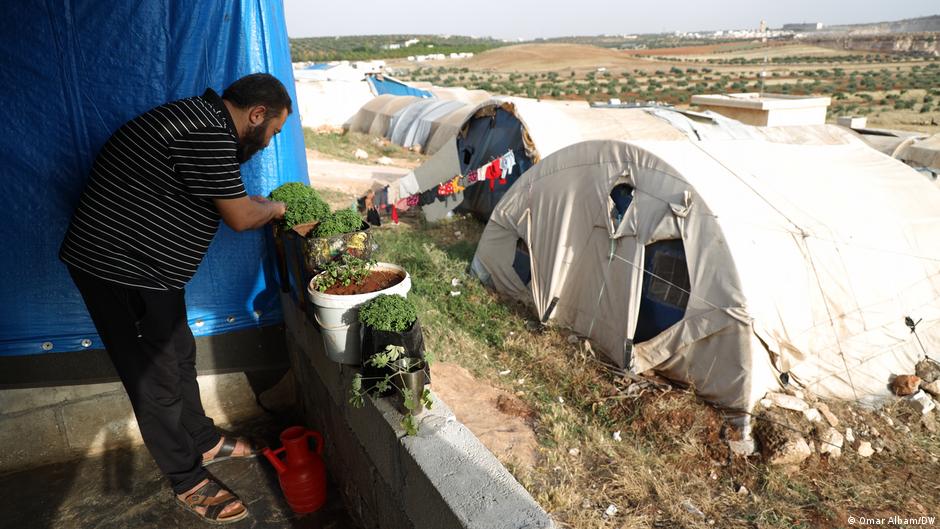
About half the Syrians in Lebanon – around 815,000 – are officially registered with the UN as refugees, but as such they are not allowed to work. "So either your papers are valid and you are forbidden from working," al-Youssef said. "Or you're a beggar. Or a criminal."
Getting to Idlib was anything but easy and the al-Youssef family was unlucky. They were arrested by Syrian soldiers at a checkpoint. Al-Youssef's wife and children were in prison for about a week while he was transferred to another prison where he was tortured.
"I had nothing to do with it [anti-government protests], I was in Lebanon working. But you're held accountable anyway. They torture you, you have to confess," al-Youssef recounted.
Then he was forcibly conscripted into the Syrian army. After two weeks he managed to escape and get to Idlib. "Now I just thank God, I made it here," said al-Youssef.
© Deutsche Welle 2024

